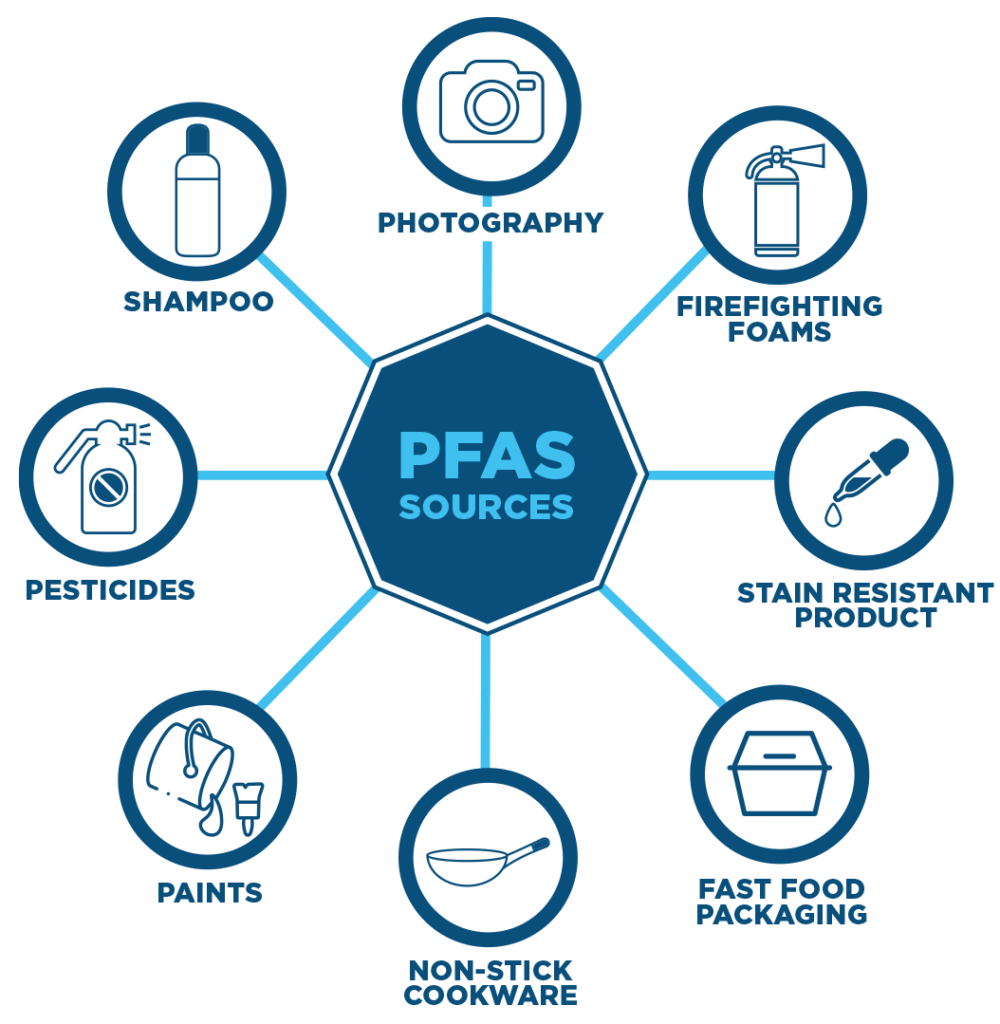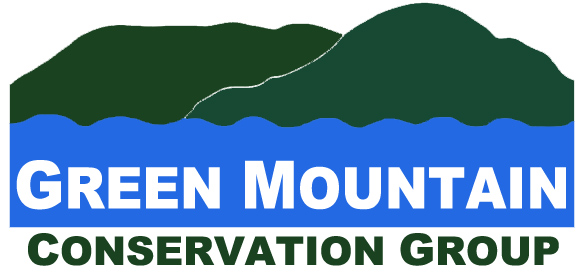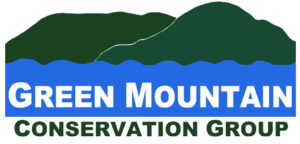
PFAS (Per- and Polyfluoroalkyl Substances) Resources
GMCG is committed to protecting water resources in the Ossipee Watershed. PFAS are an emerging contaminant, meaning their full impacts on human health are not yet known. While GMCG is not currently equipped to sample for PFAS, we will continue to stay informed with the latest PFAS information and keep the community updated on how PFAS are affecting our area.
GMCG is not responsible for the content of the links shared below, and we do not monitor these links to ensure their validity.
Interactive Map: NH DES PFAS Sampling in New Hampshire
CBS News article on federal PFAS regulations:
https://www.cbsnews.com/news/epa-first-ever-drinking-water-regulations-pfas-forever-chemicals/
NH Legislative Updates:
New Hampshire Department of Environmental Services contacts for PFAS:
Amy Rousseau; PFAS Response Administrator: amyrousseau@des.nh.gov
Jennifer Harfmann, Ph.D.; PFAS Discharge Specialist: jennifer.l.harfmann@des.nh.gov
Derek Bennett; MBTE Remediation Program Administrator: derek.s.bennett@des.nh.gov
Brandon Kernan; Drinking Water and Groundwater Bureau Administrator: Brandon.M.Kernen@des.nh.gov
NHDES private well sampling is focused on those areas most susceptible to contamination. They primarily target wells that are in close proximity to other wells where exceedances of drinking water standards have already been identified. NHDES will occasionally conduct more general sampling for screening purposes, but it is not a priority due to time and budget constraints.
Residents are able to request sampling at the link below. NHDES reviews this information and tries to incorporate as many requests as possible into their work.
PFAS sampling can be costly. NHDES does recommend private well owners test for PFAS if it has not been done before, but they acknowledge the cost is prohibitive relative to the traditional contaminants that they recommend be tested. Labs could charge $250-$550 per sample. Many subcontract the work and mark the cost up quite a bit. The cost would be lower if you were to seek bids and deliver the bottles in batches. Granite State Analytical has many couriers in the state so shipping could be cheaper with them. If initial PFAS sampling reveals no PFAS, and household budget does not allow for re-testing every 3-5 years, NHDES states it is acceptable to wait longer, especially if surrounding land uses do not change.
NHDES Resources:
Private Well Water Testing Guidance:
https://www.des.nh.gov/sites/g/files/ehbemt341/files/documents/labs-private-wells.pdf
PFAS in New Hampshire: What you need to know:
https://www.pfas.des.nh.gov/sites/g/files/ehbemt586/files/inline-documents/2022-09/pfas-in-nh.pdf
PFAS in Well Water Fact Sheet:
https://www.des.nh.gov/sites/g/files/ehbemt341/files/documents/dwgb-3-25.pdf
ME Legislative Update:
4/16/2024: https://www.pillsburylaw.com/en/news-and-insights/maine-pfas-law.html
Maine Department of Environmental Protection contacts for PFAS:
Tracy Kelly; PFAS and Emerging Contaminants: tracy.kelly@maine.gov
Chris Evans; Groundwater: gordon.c.evans@maine.gov
Amy Lachance; Drinking Water Program Director: Amy.Lachance@Maine.gov
Maine DEP recommends testing for PFAS in private wells only when there is suspicion of well water contamination. Testing for these chemicals in well water is expensive ($250-500) and only done by a few DEP approved laboratories. If you are concerned about whether these chemicals are in your well water, contact one of Maine DEP’s toxicologists to discuss whether testing your well water makes sense. Call 207-287-4311. Maine does offer reimbursement for sampling of wells near lands that where sludge was spread.
Many public water systems have been required to be tested for PFAS by 2023. Results can be found at the link below.
https://www.maine.gov/dhhs/mecdc/environmental-health/dwp/cet/documents/pfasResults.pdf
Local PFAS Issues
Tamworth Receptor Survey Plan:
https://www4.des.state.nh.us/IISProxy/IISProxy.dll?ContentId=4760727
Spring 2019 Sampling Results for Tamworth Receptor Survey:
https://www4.des.state.nh.us/IISProxy/IISProxy.dll?ContentId=4774019
Spring 2019 Sampling Results for Effingham Receptor Survey:
https://www4.des.state.nh.us/IISProxy/IISProxy.dll?ContentId=4776652
GMCG PFAS Workshop Nov. 21, 2019 at Runnells Hall Chocorua, NH:
View PowerPoint presentation by Branden Kernen (DES): Kernen_GM
View PowerPoint presentation by Shaina Kasper (Toxics Action Vermont): PFAS presentation 11_21_2019
Watch a video of the presentations here: https://www.facebook.com/gmcgnh/videos/1008989406118149/
NH State Info on PFAS:
Tamworth Landfill letter from NHDES:
https://www4.des.state.nh.us/IISProxy/IISProxy.dll?ContentId=4754500
Effingham Landfill letter from NHDES:
https://www4.des.state.nh.us/IISProxy/IISProxy.dll?ContentId=4757097
New Hampshire DES PFAS Response website:
Stakeholder presentation that lays out what should happen if PFAS are detected:
https://www.des.nh.gov/organization/commissioner/documents/pfas-20170411-stakeholder-meeting.pdf
NHPR reporting on CDC recommendations June 2018:
NHDES Guidance for Waste Sites FAQ:
https://www.des.nh.gov/organization/commissioner/documents/pfas-faq.pdf
NH’s New PFAS Limits Face Swift Lawsuit From Local Water Handlers, 3M:
https://www.nhpr.org/post/nh-s-new-pfas-limits-face-swift-lawsuit-local-water-handlers-3m#stream/0
PFAS settlement to bring $65 million to New Hampshire in next few years:
https://www.wmur.com/article/pfas-settlement-new-hampshire-3m-dupont/61855857
Federal Info on PFAS:
Agency for Toxic Substances and Disease Registry (ATSDR):
https://www.atsdr.cdc.gov/pfas/pfas-exposure.html
Clinical Fact Sheet from ATSDR:
https://www.atsdr.cdc.gov/pfas/docs/PFAS-info-for-clinicians-factsheet-508.pdf
Health Advisories from EPA:
https://www.epa.gov/ground-water-and-drinking-water/drinking-water-health-advisories-pfoa-and-pfos
EPA Small and Rural Water Systems Fact Sheet for EPA’s 2024 National PFAS Standards:
https://www.epa.gov/system/files/documents/2024-04/pfas-npdwr_fact-sheet_monitoring_4.8.24.pdf
EPA Technical Science Fact Sheet:
Quick Fact Sheet:
https://www.atsdr.cdc.gov/pfas/docs/pfas_fact_sheet.pdf
PFAS Explained by the EPA:
https://www.epa.gov/pfas/basic-information-pfas#health
More PFAS info:
Editorial in Environmental Health about the delayed detection, dissemination of PFAS:
https://www.ncbi.nlm.nih.gov/pmc/articles/PMC6066926/pdf/12940_2018_Article_405.pdf
Interactive map created by Northeastern University’s PFAS Project Lab showing known PFAS contamination sites and community resources:
https://experience.arcgis.com/experience/12412ab41b3141598e0bb48523a7c940/
List of PFAS-free products from PFAS Central:
https://pfascentral.org/pfas-basics/pfas-free-products/
News from contamination cases:
New Hampshire:
Maine:
https://www.wbur.org/news/2024/08/21/pfas-discharge-maine-firefighting-foam-brunswick
Vermont:



